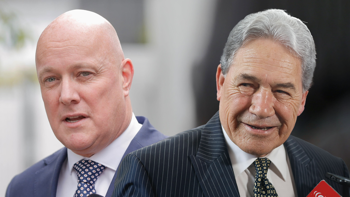Her body has been returned to her family and they are in the process of taking her home to Essex in England during the next few days.
Eaton said the breaches are not only endangering a fair trial but potentially any future trial at all.
"It is for example entirely inappropriate for media organisations and individuals to say where people can find information about the accused," he said.
"The publicity about the accused undermines the prospect of finding an impartial jury."
/arc-anglerfish-syd-prod-nzme.s3.amazonaws.com/public/KYRXAH4FNBECBHJ4CMQP5ZGF5A.jpg)
The leading criminal barrister added it is not just the press which have a responsibility to work within the laws of the justice system, those sharing information on social media are equally bound by court orders.
"It is a criminal offence to breach a suppression order," he said.
"It is punishable by up to six months imprisonment. Those who are breaching or helping others to breach or circumvent the court order are not helping, and as the Minister of Justice commented, an aborted trial will only add to the grief of the Millane family."
Judges, Eaton continued, are bound by the law as much as anyone else.
"And the District Court judge in this case, by law, had to suppress the defendant's name once it became clear that there would be an appeal against the judge's initial decision to refuse suppression."
Earlier today, Justice Minister Andrew told the Herald if police are willing to find the source who leaked the name of the man accused of murdering British backpacker Grace Millane they would be prosecuted.
"If we can trace the publication of it to somebody in New Zealand at the time then they can be done for contempt of court."
/arc-anglerfish-syd-prod-nzme.s3.amazonaws.com/public/IUYHRNCTM5BTPNGW5WKCR64ID4.jpg)
He said the British press were able to name the accused after his court appearance because "someone in New Zealand provided those details".
"I'm not quite sure how much time the police want to expend trying to track who that might be," he said. "Certainly, technically, there is somebody in New Zealand who is responsible for breaching the suppression orders who could be called to account if there is a willingness to do so."
A Google spokesperson told the Herald it would comply with any court order it was made aware of, however, they said initial investigations by the tech giant showed it did not know about the suppression order.
"We respect New Zealand law and understand the concerns around what is clearly a sensitive case," the spokesperson said.
"When we receive valid court orders, including suppression orders, we review and respond appropriately. In this case, we didn't receive an order to take action. We are looking for ways to better ensure courts have the tools to quickly and easily provide these orders to us in the future."


/arc-anglerfish-syd-prod-nzme.s3.amazonaws.com/public/D5B4DKBHRRESNHDMYUXBE6JM2Q.jpg)








